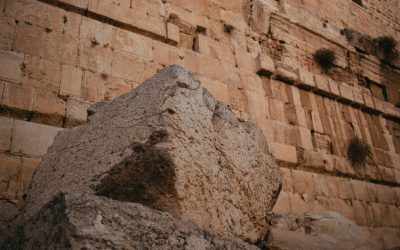Discernment Basics
When we talk about discernment, we usually mean taking the time to make a thoughtful decision or judgment. It usually involves a careful evaluation of different factors, looking at all our options, and trying to weigh possible outcomes. We try to practically determine the right course of action.
A Christian understanding of discernment is slightly different. It comes from the Latin word to “separate” or “distinguish.” The goal of discernment is not just to figure out what we want or what we think is best. Christian discernment is an effort to distinguish God’s will from our own desires or temptations. The purpose of discernment is to make choices that help us live in union with God’s will.
We often talk about discernment in making particularly significant decisions about big questions, like the general trajectory of life, our vocation, or responding to difficult challenges of life. Many people reduce discernment to looking for signs to confirm or deny what they believe is God’s will. However, this emphasis may unintentionally reduce discernment to the solving of a puzzle: God has a plan for the big decisions of my life, and I have to follow the right steps to figure it out.
No, there’s so much more than this! More than a tool to make important decisions, it is a disposition to seek God’s will in all things. This includes, but goes beyond the big moments. It is not steps to solve a problem, but the orientation of our heart upward instead of inward.
Holiness is not just a mind that knows God’s plan or a will that directs us to complete actions we feel God wants. We are not called to the obedience of dogs, but the loving acceptance and trust as sons and daughters of God. It’s the whole person united to God, mind, heart, and will. So discernment is an effort to know His will, to love it, and to do it as best we can. That’s why the disposition is just as important as actually taking the steps to follow God’s will. In all things we were able to listen and distinguish between our voice, the world, temptations, and the voice of the Lord who speaks in the quiet of our heart.
We can never know with complete certainty what God’s will is, but the most important aspect of discernment is not “getting it right” but developing a heart that seeks Him and His will above our own.
Discernment Presuppositions
The practice of discernment presupposes several things:
- God is not indifferent to my life and decisions.
- He created me for a purpose.
- He actively communicates His will to me. He wants me to know Him and His desires!
- That “call” is not just the larger vocation of my life, but in each moment God seeks to make His will known to me.
- The call contains not just my mission in life, but my entire identity: the particular way I imitate Jesus.
- Because who He made me to be is so connected to His will, our own heart is an essential way to discover it.
- There’s a lot of noise in our heart. It’s the place where concupiscence, the devil, and the Lord fight for a place.
- It requires effort to sort through this noise and seek Him alone.
Ignatius gave us tools for discernment to help us break through the noise and more clearly find God’s will. But it’s important to remember that discernment is more than an aid to making good decisions. It’s a habitual attitude of seeking God’s will that unites my prayer and life together.
Three Modes of Ignatian Discernment
According to St. Ignatius, there are three primary modes or approaches to discernment.
The first mode is a sense of complete certainty. While it is true that we can’t ever “know” with certainty God’s will, He does at times give us a sense or feeling of certainty in our discernment. However, this is rare. So if one does think they have received this gift from the Lord, it’s very important to confirm it with a Spiritual Director, your pastor, or some other trustworthy person besides yourself.
The second mode is what St. Ignatius calls “discernment of spirits.” We try to interpret what Ignatius called “motions of the soul.” These can include thoughts, imagination, emotions, inclinations, desires, feelings, repulsions, and attractions. Practicing Discernment of Spirits means becoming aware of these and then trying to understand where they come from to answer the important question: where are they leading me? If God made me for His will, then the part of me that seeks Him and is made for Him will respond to His will with peace and joy. We call this “consolation.” On the contrary, the fallen part of me that seeks sin will cause confusion, discouragement, fear, and so on. We call this an experience of “desolation.”
The Last mode St. Ignatius talks about is to weigh a decision, event, or circumstance in light of eternity. We look at the pros and cons, but not from the perspective of what we desire, but asking, “which decision will be most beneficial for my soul? What circumstances will most help me live my Christian life faithfully? What event or direction will give the most benefit to others or help me love them more?”
Consolation and Desolation
Most of the time God does not give us the certainty of first mode, so St. Ignatius recommends mostly relying on the second mode to discern God’s will. The third mode can be helpful, but it’s easy to turn it into a mathematical analysis instead of a loving attentiveness and seeking after God’s will.
Both consolation and desolation can move us toward or away from God. Consolation is not always good and desolation is not always bad. Ignatius gave more complete rules, but basically, those who strive to follow the Lord experience consolation as a pull towards God and desolation as a pull away from Him.
Consolation is: joy, peace, love, trust, openness, generous, docility, discretion, humility, confidence in God, purity of intention, patience in suffering, self-abnegation, simplicity, liberty of spirit, and a desire to imitate Christ
Desolation is: confusion, doubt, anxiety, discouragement, fear, secrecy, selfishness, obstinacy, pride, vanity, false humility, despair, disobedience, hardness of heart, impatience in suffering, uncontrolled passions, hypocrisy, excessive attachment to emotions or the senses, scrupulosity
It’s important to note that these are not emotions, but a deep experience of our own heart so vividly and frequently described in the Psalms. For example, one can have a deep fear or anxiety in doing something hard, but also experience a deep peace and trust.
Or, we can find delight and excitement about a decision, but also have a deep doubt or emotional attachment to it.
Big and Little Discernment
There is a big difference between how we approach discernment in large decision and how we approach it in the day to day. That’s what we will see in the next article.


